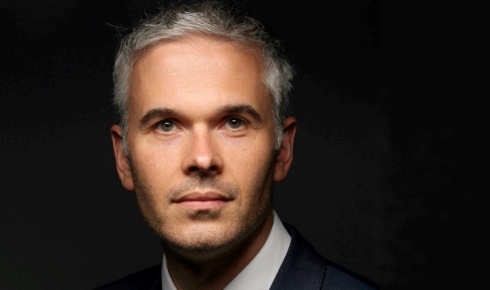Why an oral vaccine could be key to fighting COVID-19

Dr Elliot Bland, business development director at Stabilitech, is developing a potential vaccine stable enough to post to citizens as a capsule, rather than one requiring healthcare professionals and needles
Stabilitech is a UK-based biopharma company that has developed a thermally-stable oral vaccine for COVID-19. They are now looking for funding to test the vaccine in clinical trials.
Presumably, one of the major benefits of an oral vaccine during a pandemic is that people don't need to interact with a healthcare professional?
Absolutely. Whether a vaccine requires needles or an electroporation device, you absolutely have to have a healthcare professional to administer it. So, that means visits to hospitals or temporary facilities, and either way people will have to queue up and you have healthcare professionals, patients who don't have COVID-19, and some who have COVID-19, all interacting. The time required to gain immunity after a vaccine can be up to 21-28 days, and some of the other vaccines in development require multiple doses before you have gained sufficient immune protection. So you’re talking about lining up millions of people outside however many vaccine facilities you've got, and that is a huge logistical task.
Our technology means that there would be no need to keep the vaccine stored at a certain temperature, and that it could be mailed worldwide and taken at home orally, subject to regulatory authorities being comfortable with that scenario.
Can you tell us what the company was working on before the pandemic and how that has developed into a potential COVID-19 vaccine?
We started off as a thermal stability speciality company, applying thermal stability to vaccines and viral vectors. We can take a virus that would initially require a -20°C to -80° cold chain [i.e. it needs to be transported and stored at that temperature at all times] and make it stable in a 4°C or more often than not, a 25°C environment.
More recently we started to explore delivering viral vectors to the intestinal tract – to essentially get the cells in your gut to manufacture a protein of interest. We applied that to vaccines – the leading candidate at the time was the Zika virus vaccine which had progressed through animal models very well.
In January, COVID-19 started to become an eminent problem on a global level. We decided to utilise the knowledge that we gained around the Zika virus vaccine and apply it to a coronavirus vaccine. And then, things started to dovetail nicely in terms of what our vaccine offers, which is specifically really useful, potentially, for this particular virus.
Research on SARS-CoV-2 emerged and showed that it not only gains access by the mucosal sites, but it also seems to predominately reside there. The virus goes in via the mucosa and sits in the mucosal layer and the epithelial layers of the lung, and we have an orally-administered vaccine that is eliciting an immune response via a mucosal challenge.
It's actually different to the modality that is being developed generally by other parties, which involve intramuscular injection with needles. And so the immunobiology of our vaccine is potentially very different and relevant to the disease. It targets both mucosal and systemic immunity.
And the vaccine is based on the SARS-CoV-2 spike protein, is that correct?
That's correct. So the nuts and bolts of it is we have an adenovirus, made non-replicating but still infectious. The virus delivers the spike protein DNA payload into target cells. They will then produce that spike protein, as if they've been infected, so we will induce a mucosal immune response akin to a natural infection.
Oral vaccines sound convenient in many ways – so why aren’t they commonly used already?
There have been some oral vaccines in the past, but they were based on a bacterial element that can pass safely through the GI tract without being degraded, or a hardier virus. Often the viruses that tend to be used as viral vectors are more fragile, they can't tolerate raised temperatures and will lose viral titre and therefore efficacy very quickly.
Our technology protects viruses from thermal degradation and acidic degradation as well. So you should have a fully protected product, both on its route through the GI tract but also for worldwide delivery.
There was an oral vaccination developed in Kenya for cholera – in five days they vaccinated around 1.2 million people with around 2,000 healthcare workers and volunteers going door to door. If you can do that in Kenya, you can do it in any other country in the world, once you show the vaccine is safe and efficacious, of course.
You’re looking for £6 million to continue the development of this in clinical trials. How have you found your interaction with various funding sources and funding bodies so far during this crisis?
It hasn't been straight forward. We've been in communications with some people in Government but we haven't had any significant sources of funding made available to us.
I think that when you look at things within the UK, I'm advocating that all of the vaccines that are in development should be tried and tested, and they should be run out until their natural conclusion - they're either shown to be safe and efficacious or they fail along the way. When you have a situation where, according to The Times, the shutdown is losing the economy £2.4 billion per day, that doesn't tally up with a scenario where you make only a minimal amount of funding available to a few small players.
From my perspective, I would fund all of the feasible vaccines in development, knowing that some will fall away, as is the way in clinical development. Backing one or two horses doesn't appear to me to be the most sensible decision.
Dr Elliot Bland is business development director at Stabilitech Biopharma, a Sussex-based company which specialises in thermostabilising biopharmaceutical products and developing oral viral vaccines.


